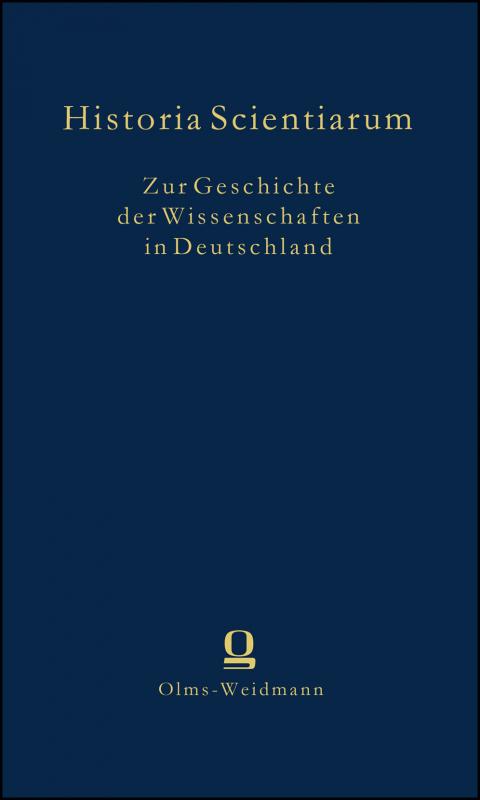
88,00
€
inkl. MwSt
- Verlag: Olms, Georg
- Themenbereich: Philosophie und Religion - Philosophie
- Genre: keine Angabe / keine Angabe
- Seitenzahl: 418
- Ersterscheinung: 07.2005
- ISBN: 9783487128979
Gesammelte Werke
Mit einer Einleitung herausgegeben von Rainer A. Bast. Band 04: Geistige Strömungen der Gegenwart.
1871 erhielt Rudolf Eucken (1846-1926) einen Ruf als Professor für Philosophie und Pädagogik an die Universität in Basel, an der zu jener Zeit Jacob Burckhardt und Friedrich Nietzsche lehrten. Schließlich kam er 1874 an die Universität von Jena, wo er bis 1920 tätig war. Als maßgeblicher Initiator der neuidealistischen Bewegung propagierte Rudolf Eucken zeit seines Lebens das Ziel einer sittlichen Lebensführung, die die mitmenschliche Lebenswelt und die geistig-künstlerische Arbeit umfassen sollte. Neben der Auseinandersetzung mit philosophiegeschichtlichen Fragen prägen die Hinwendung zur Lebensphilosophie und die Ausarbeitung einer neuen Metaphysik des Geistes Euckens Schaffen. Es kreist um das Problem der Zerrissenheit der modernen Welt sowie der Dominanz von Positivismus, Naturwissenschaften und Technik, die den Menschen an der Entfaltung seiner schöpferischen Möglichkeiten hindern.
Euckens über die Fachphilosophie hinausgehendes Denken hatte breite internationale Wirkung, die durch Verleihung des Literatur-Nobelpreises 1908 gekrönt wurde. Obwohl es unter dem Einfluß der geistigen und gesellschaftlichen Situation im ausgehenden 19. und beginnenden 20. Jahrhundert steht, spricht Euckens vielgestaltiges Werk mit seiner profunden Bildung und vorausschauenden Zivilisationskritik auch heute alle kulturell Interessierten an.****************In 1871 Rudolf Eucken (1846-1926) was appointed Professor of Philosophy and Pedagogy at the University of Basel, where Jacob Burckhardt and Freidrich Nietzsche were also teaching at that time. In 1874 he finally came to the University of Jena where he worked until 1920. As the effector initiator of a new Idealism, Eucken spent his life propagating the goal of a moral way of living which would embrace both human realitites and artistic creation. Apart from his dialogue with issues in the history of philosophy it is the move towards a phikosophy of life and a new metaphysics which characterize Eucken's work. It revolves around the problems of the conflicts in modern life and the dominance of Positivism, the natural sciences and technology which hinder the development of human creativity. Eucken's ideas reached beyond the confines of philosophy and exercised a wide-ranging international influence, culminating in the award of the Nobel Prize for Literature in 1908. Although influenced by the intellectual and social conditions of the late 19th and 20th century, Eucken's multi-faceted work with its deep cultural foundations and far-sighted critique of civilisation still addresses today's cultural interests.
Euckens über die Fachphilosophie hinausgehendes Denken hatte breite internationale Wirkung, die durch Verleihung des Literatur-Nobelpreises 1908 gekrönt wurde. Obwohl es unter dem Einfluß der geistigen und gesellschaftlichen Situation im ausgehenden 19. und beginnenden 20. Jahrhundert steht, spricht Euckens vielgestaltiges Werk mit seiner profunden Bildung und vorausschauenden Zivilisationskritik auch heute alle kulturell Interessierten an.****************In 1871 Rudolf Eucken (1846-1926) was appointed Professor of Philosophy and Pedagogy at the University of Basel, where Jacob Burckhardt and Freidrich Nietzsche were also teaching at that time. In 1874 he finally came to the University of Jena where he worked until 1920. As the effector initiator of a new Idealism, Eucken spent his life propagating the goal of a moral way of living which would embrace both human realitites and artistic creation. Apart from his dialogue with issues in the history of philosophy it is the move towards a phikosophy of life and a new metaphysics which characterize Eucken's work. It revolves around the problems of the conflicts in modern life and the dominance of Positivism, the natural sciences and technology which hinder the development of human creativity. Eucken's ideas reached beyond the confines of philosophy and exercised a wide-ranging international influence, culminating in the award of the Nobel Prize for Literature in 1908. Although influenced by the intellectual and social conditions of the late 19th and 20th century, Eucken's multi-faceted work with its deep cultural foundations and far-sighted critique of civilisation still addresses today's cultural interests.
Meinungen aus der Lesejury
Es sind noch keine Einträge vorhanden.

